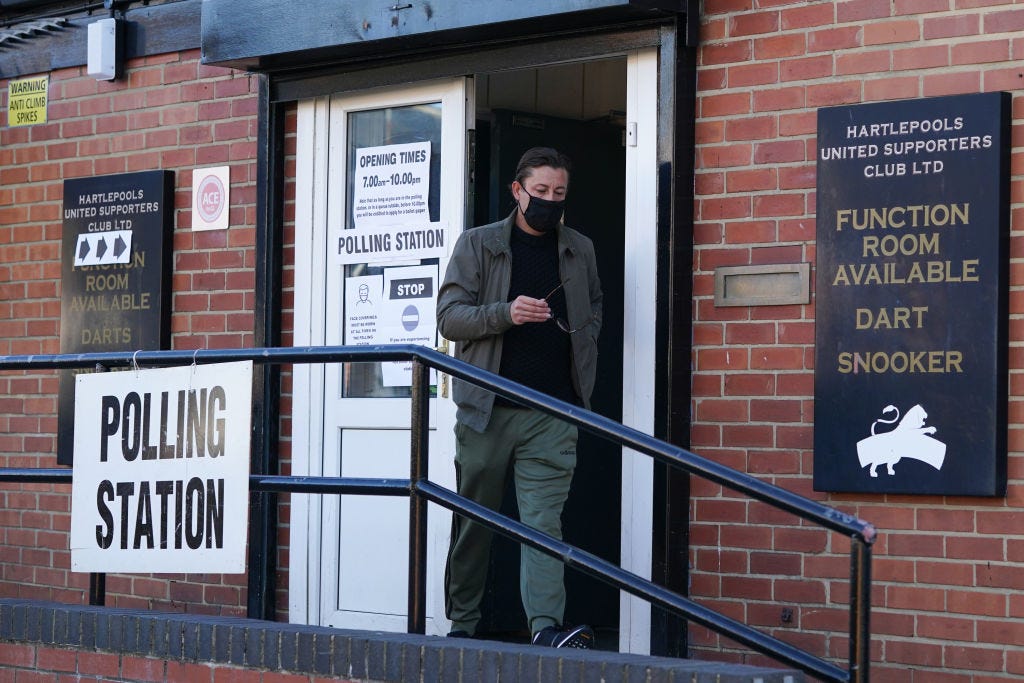Confronting the black market argument
We offer a viewpoint on recent comments from Andrew Black and what we think of the polling from the Betting and Gaming Council
Welcome to the Pinchpoint edition #3. Thank you for subscribing.
The frequency of the leaks about what is to come in the UK government’s white paper on gambling must mean that the final verdict will be with us soon.
On the same day earlier this week, VIVIO GamblingCompliance reported that £2 limits for online slots are definitely going to be imposed, which The Times repeated - alongside a piece from the UKGC’s new-ish CEO, Marcus Boyle, flagging more and bigger fines and tighter licensing.
Hold onto your PMLs, folks.
As we reported in the last edition, the rumour at the time of ICE was that an affordability limit would also be imposed at £500. No more detail there, except this from Mr. Boyle:
“Recent investigations reveal cases with jaw-dropping examples of substantial amounts being taken from individuals who cannot afford to wager such sums.”
Into this mix comes a recent article from Andrew Black, the ex-founder at Betfair, in the Racing Post, which we comment on below.
Then we take a look at the results from a recent survey put out by the Betting and Gaming Council and ask whether this somewhat rearguard action will have any impact.
Meantime, the rate of inflation continues to rise, with fears of worse to come for consumers and businesses. Anyone who thinks these things are not related clearly isn’t paying attention.
Affordability and the (Andrew) Black market
It was intriguing to see Andrew Black’s spicy intervention in the debate around affordability the other week in the Racing Post.
To cut a long story short: we’re all doomed to a ‘Spanish Inquisition’ of “intrusive financial checks” triggered by “as little as £100 spend a month”.
Take that, Torquemada.
If you’ve been around gambling as long as Pinchpoint has, this might be familiar territory.
A decade or so ago, a similar apocalypse was predicted for mandatory ID verification. With absolute certainty, we were warned that the intrusion of proving name, address and date of birth would drive players away from the regulated market.
It didn’t happen then, and we are highly confident that it won’t happen now.
As with KYC opponents before him, the Black argument is essentially that players would rather not bet at all than submit to the inquisition. He is helped in this by a widespread feeling in the industry that anti-gambling campaigners believe this too, only they see it as a way to shut the industry down.
And as with KYC, there are flaws to this argument.
The first flaw is that they assume that the problem is the principle, not the process.
YouGov polled UK adults recently and found a majority dislike being asked for bank statements. Black, and many others opposed to data checks, argue that this is because they are an invasion of privacy.
The KYC experience shows that even if there is resistance, people can get past it if operators make the process smooth and convenient. In the 2000s, companies like URU and 192.com arrived to save the day; they brilliantly combined the new-ish technology of server APIs with fast databases culled from utility companies, electoral rolls and marketing data to automate the process of verification. A simple form and an instant answer made it painless for everyone.
Something similar is happening already in Affordability checking with solutions like Department of Trust’s BetBudget app, and other direct-access solutions using Open Banking.
Operators can use these tools to build user-friendly, privacy-protecting and accurate affordability profiles on players at scale. The idea of scanning bank statements to verify affordability will soon be as out of date as sending a fax with your passport to open a gaming account.
The second flaw of the Black argument is subtle but important. It is the assumption that a mandatory check is worse than an optional one - i.e. if you ask everyone for data, everyone will refuse, creating an extinction-level event for the industry.
Actually, we think the opposite is true. A mandatory check creates a level playing field and helps establish the expectation amongst the players that if they want to keep gambling, they need to allow some kind of affordability check based on bank data.
Importantly, it means that when an operator asks for data, they can honestly say they are not targeting the player personally. It’s actually an easier sell.
This industry has shown before that it can innovate its way out of a problem like this. Pinchpoint is glad to report that it sees every reason to believe that with affordability checks, as with other hurdles, if there’s a will, someone finds a way.
BREAKING NEWS: The energy regulator has warned that the UK household's typical energy bill is set to rise by around £800 per year.
What we’re reading
The Sunday Times had an interesting piece from inside the customer relations department at Flutter. It quotes Conor Grant, Flutter’s CEO for the UK and Ireland.
“There has been a seismic change over the past two to three years. Flutter, and a number of our leading competitors, have been making huge strides in terms of how we interact with our customers.”
The article also had an interesting quote from Rob Hoskin, the chief governance officer at Entain. “Some of the legacy stories do not make good reading.”
He added: “We want customers long-term. If you take higher-risk players and they burn out, it’s not a great business model.”
Compliance is business-critical
Paula Pusey, MD at KnowNow says that the suggestion that regulatory penalties are some kind of ‘“operating or compliance tax’” doesn’t sit well and that this argument loses sight of why we do this in the first place.
“It always boils down to social responsibility and AML failings.”
The BGC affordability survey
Seemingly just waking up to the possibility for affordability measures to be introduced as part of the upcoming White Paper, the Betting and Gaming Council (BGC) released the results of polling conducted with YouGov which suggested, unsurprisingly, that a majority of punters believe the government should not set limits on how much they could bet.
According to the survey, 56% felt the government should not be involved while 65% believe there is a “large or substantial risk that setting limits on the amount of money spent on betting would drive more people to the unsafe, unregulated black market online”.
There’s an urban myth that seatbelts make people drive more dangerously. It’s intuitively sound but statistically vacant. The same is likely true of the ‘black market’ argument. Will most people really trade a safer environment for a more risky one because the safer environment makes them wear a seatbelt?
Affordability measures, like any RG control, can be seen as a safety belt empowering operators to monitor for unsustainable levels of gambling spend and potentially helping their customers to avoid suffering gambling harms.
Mandating some level of checks creates a level playing field, removing any commercial incentive to avoid the problem.
Pinchpoint hopes the BGC finds some better arguments before it is laughed out of Whitehall.
About
Pinchpoint is a newsletter from by Department of Trust and BetBudget.
The newsletter is published independently under the editorial supervision of Scott Longley of Clear Concise Media. Pinchpoint is not affiliated with any other publications.
We hope you find it useful and, as ever with these things, if you think any of your colleagues would be interested, then please feel free to share.
Contact
Charles Cohen, DoTrust: charles@dotrust.co.uk





